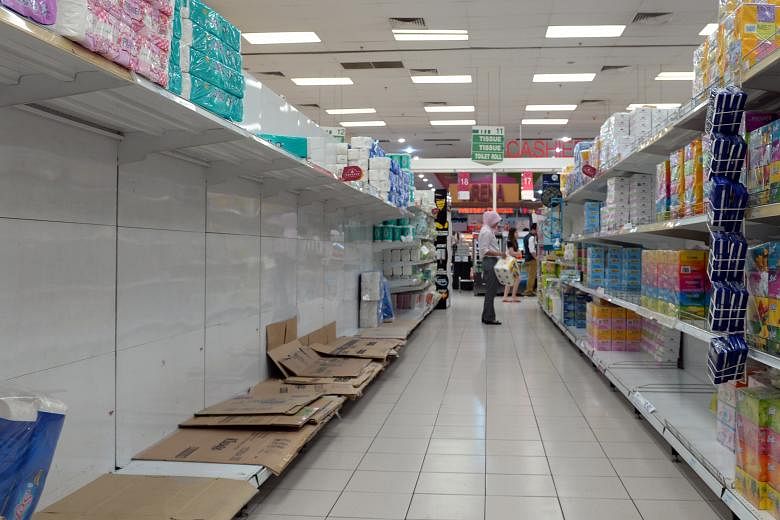KUALA LUMPUR • Malaysia's economy grew at the slowest pace in nearly two years after a new consumption tax curbed private spending, adding pressure on policymakers to revive confidence in a nation facing political turmoil and a weakening currency.
Gross domestic product rose 4.9 per cent in the three months through June from a year earlier, after climbing 5.6 per cent in the previous quarter, the central bank said yesterday.
The export-dependent economy is also threatened by a rout in commodity prices and China's yuan devaluations earlier this week.
Australia and New Zealand Banking Group economists Weiwen Ng and Glenn Maguire, pointing to the currency's weakness as a barometer of sentiment, wrote in a note: "Malaysia continues to be caught in changing domestic and external cross-currents.
"If fundamentals are overshadowed, the risk is that the confidence deficiency the Malaysian ringgit is suffering from may evolve into an economic malaise."
Foreign funds have dumped about US$3 billion (S$4.2 billion) of the country's shares this year, and the ringgit is at a 17-year low as Prime Minister Najib Razak grapples with allegations of financial irregularities at a state investment firm.
The Malaysian ringgit is also Asia's worst-performing currency this year after falling about 13 per cent against the greenback. The ringgit slipped to 4.0335 to the greenback, its weakest since 1998. The FTSE Bursa Malaysia KLCI Index has also lost about 13 per cent from this year's high in April.
Malaysian central bank governor Zeti Akhtar Aziz, speaking to reporters yesterday, said the impact of the ringgit's depreciation is manageable and the economy will remain on a steady growth path. Monetary policy remains accommodative and supportive of economic activity, she added. Bank Negara left its key rate unchanged for a sixth straight meeting last month.
The ringgit and stocks rose yesterday as speculation that China intervened to stem the yuan's plunge helped calm markets. The ringgit temporarily extended gains after the report showed GDP slowed down less than estimated.
Singapore-based OCBC economist Wellian Wiranto, referring to the goods and services tax implemented in April, said: "While household spending did indeed pull back as the GST effect played out in full force, it still posted an okay growth rate." Private consumption "did not collapse as precipitously as might have been feared", he said.
Malaysia's GDP is forecast to grow 4.5 per cent to 5.5 per cent this year, down from an earlier projection of 6 per cent. Other economies in the region have signalled a softening outlook, as Singapore slashed the upper end of its growth forecast for 2015 after the economy shrank last quarter.
BLOOMBERG

